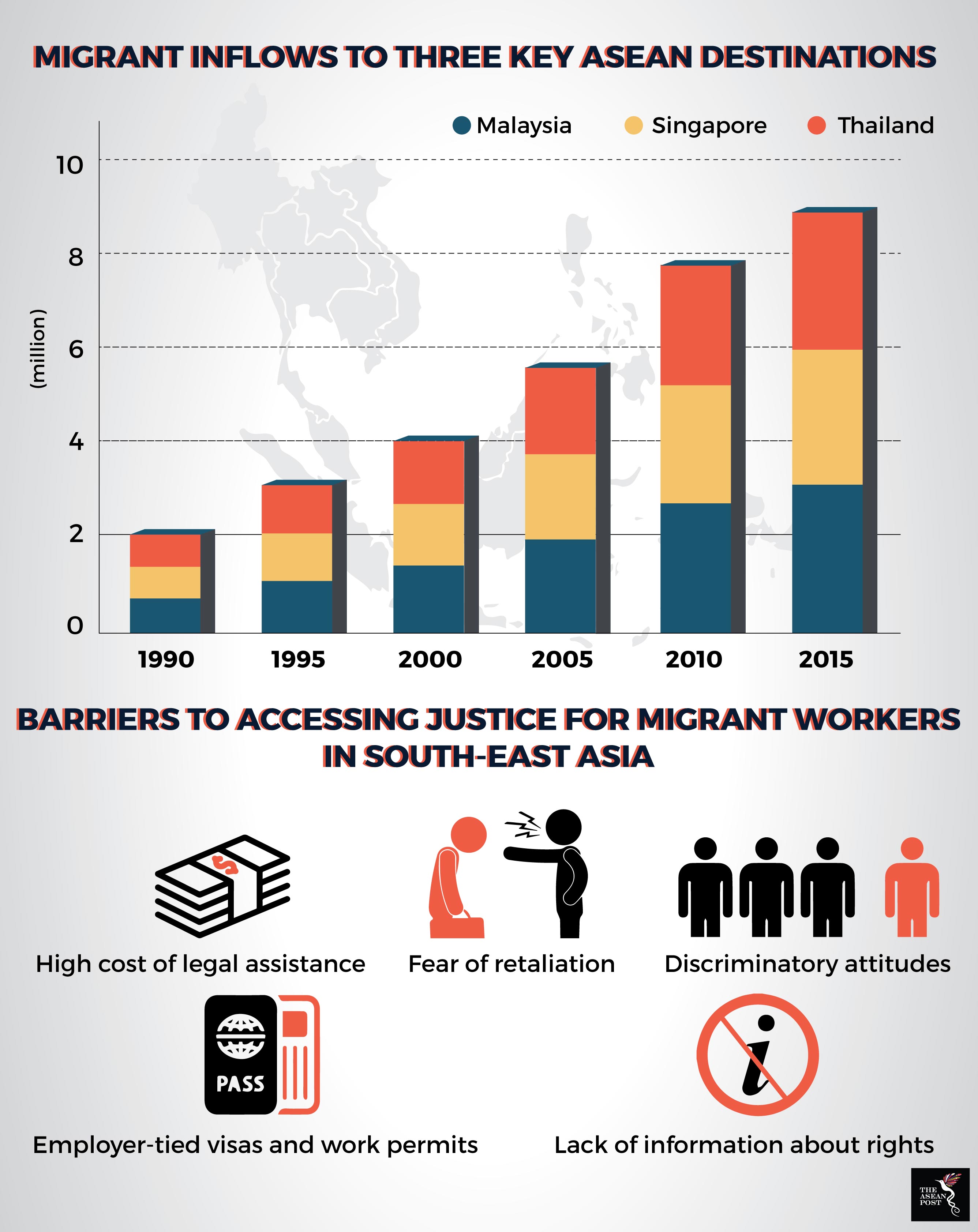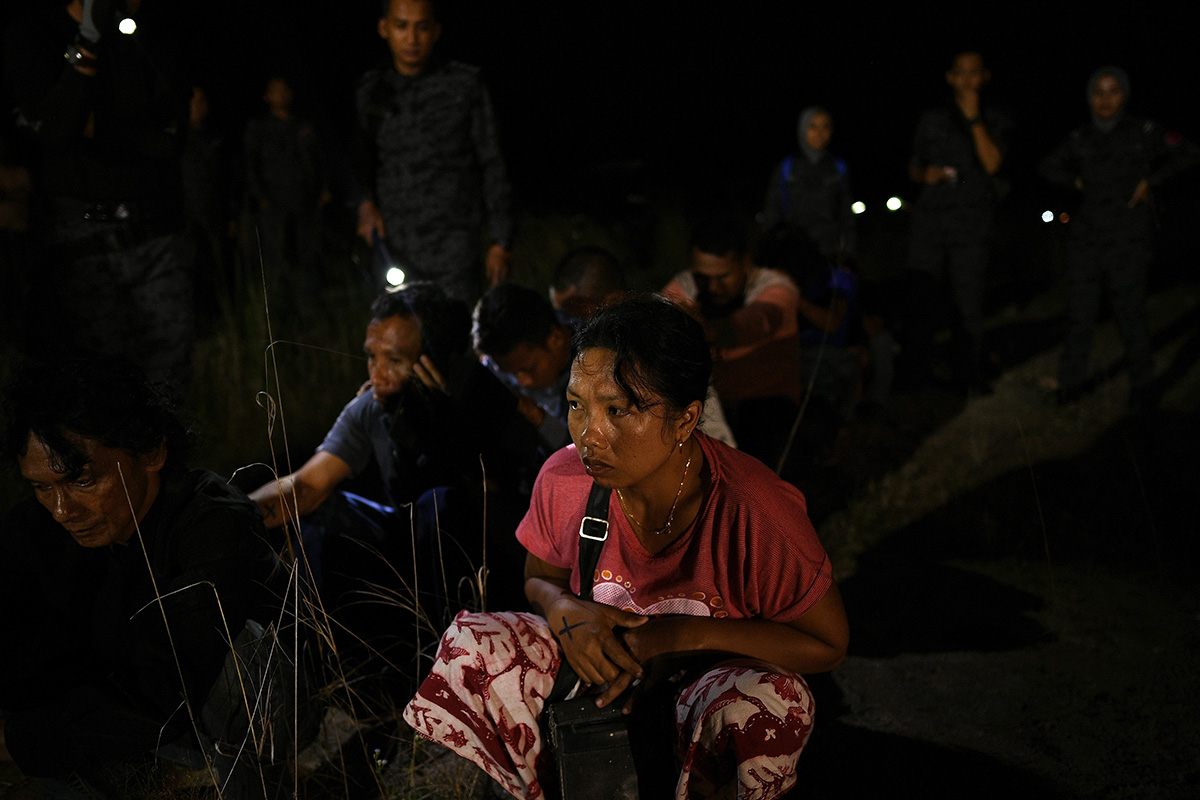Southeast Asia has always been a fluid region. Before modern borders were established, migration within and outside the region was the norm. Southeast Asia used to be a region defined by kingdoms and empires where demographics were constantly shifting. This coupled with the fact that it used to be a hub for traders from all over the world has made the region what it is today; a dynamic confluence of diverse cultures and ethnicities with a shared history.
Fast forward to contemporary Southeast Asia and migration within the region is still happening on a regular basis – but for different reasons. Data from the International Labour Organisation (ILO) shows that there are seven million Southeast Asian migrant workers within the region.
While reasons for migration could differ from country to country, migration within the region usually occurs for economic reasons. Workers from countries where opportunities are scarce or where wages are too low usually seek for more favourable economic conditions elsewhere.
The unequal development seen in ASEAN member countries is also another reason for migration. Some countries have many urban centres and are more economically developed than others. The high demand for jobs in urban centres and the prospect of decent wages usually attracts migrants from rural areas to move. Furthermore, rural poverty in the region is high and the agriculture sector is slowly declining. Hence, workers would look for opportunities in sectors which are more economically reliable. A look into the data provided by the United Nations (UN) highlights this. The three countries which receive the most migrants in the region are Singapore, Malaysia and Thailand, with a relatively higher gross domestic product (GDP) per capita than most other ASEAN member states. These three countries alone account for 96% of the total migrant work force in ASEAN according to the World Bank.

Source: United Nations
The movement of workers within ASEAN has been absolutely vital to the region’s economy. For Malaysia, Thailand and Singapore, foreign workers are usually seen as a cheap source of labour. These countries depend on cheap labour to build their malls, offices, homes and other infrastructure. Many of these workers are also women, who come to these countries as domestic workers. All these migrant workers spend some of their wages in the host country, which spurs the local economy. Thus, migrant workers have a significant role to play in developing a host country’s economy. Meanwhile, the home countries of these migrant workers also benefit through remittances sent home.
Despite the significant role they play in the region’s development, migrant workers are often treated with disrespect and discriminated. Migrant workers are usually low-skilled and often relegated to do work deemed “too dirty” for the locals.
To find a job abroad, a migrant worker usually goes to a recruitment agency. However, there have been many documented cases where these agencies exploit migrants by cheating them out of their money or by charging exorbitant processing fees.
There are also instances where host countries do not protect migrant workers enough or provide them with equal legal rights. A 2017 US Department of State report revealed that in Malaysia, migrant workers are subjected to “practices that can indicate forced labour, such as passport retention, contract violations, restricted movement, wage fraud, and imposition of significant debts by recruitment agents and employers.”
This isn’t happening only in Malaysia as there are also documented cases in other parts of the region as well. A survey conducted by Research Across Borders last year revealed that six out of every 10 foreign domestic workers in Singapore are exploited by their employers.
One way to combat abuses and to protect migrant workers is by giving them an avenue to seek justice. However, migrant workers often face numerous obstacles when trying to obtain justice. These obstacles range from fear of retaliation and language barriers to high costs of legal assistance and many more.
“Barriers to accessing formal assistance is one of the key reasons why migrant workers are vulnerable to labour rights violations during recruitment and employment,” said Tomoko Nishimoto, ILO Assistant Director-General and Regional Director for Asia and the Pacific.
ASEAN also needs to step in and ensure that migrants among member states are well protected. ASEAN member states that signed the ASEAN Consensus on the Protection and Promotion of the Rights of Migrant Workers last year need to remember that they have a responsibility to ensure migrant workers are not treated as second class citizens.
